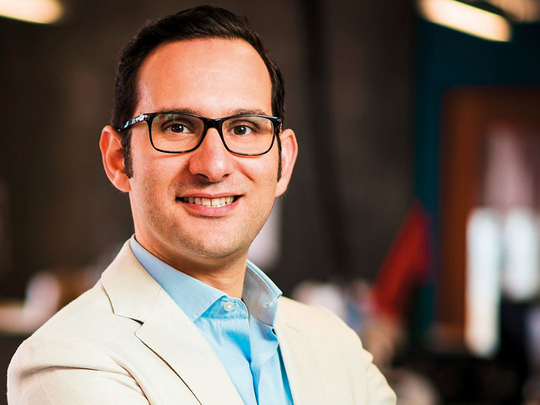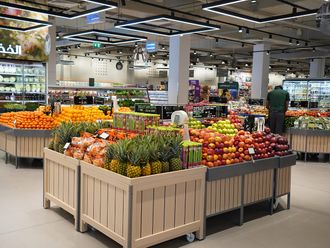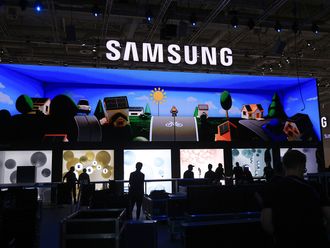
Dubai: Facebook Inc. is turning its attention to the future of physical shopping and investing heavily in its offline retail products, its regional head of retail Shant Oknayan has said.
Having established itself as a major force in e-commerce, with part of the company’s total $40 billion (Dh146 billion) in 2017 ad revenue made up by online retailers, the world’s largest social network says it now intends to help brands drive footfall and revenue in their brick-and-mortar locations.
“At Facebook, we see the opportunity to play a key role in driving store sales and store traffic, and therefore we’ve invested quite heavily in what we call our offline solutions as well,” Oknayan told Gulf News on Monday.
- Shant Oknayan | Facebook’s regional head of retail
Among a number of methods the company is currently exploring, Facebook could help drive traffic to physical shops by informing customers whenever they are within a specific radius of a coffee shop, for example.
“We’re investing in driving a lot more store sales. We’ve seen a few tests that we’ve done in the US around that. But more importantly, we’re helping to bridge that research online and the purchase offline that is kind of the holy grail of marketing today,” Oknayan said.
“We’ve invested in solutions that allow you to measure that,” he added.
When asked to provide a specific figure that Facebook Middle East and North Africa (Mena) had put in to this project, the senior executive said he could not answer.
“Honestly I wouldn’t know what that [figure] is. I just know that from a prioritisation perspective, when I look at our retail endeavours, this is definitely top-of-mind,” Oknayan said.
Such investment in physical retail was a reflection of “where the industry is today, and where it’ll carry on being tomorrow,” he said, adding that despite the growth of e-commerce, the world would remain focused on bricks-and-mortar shopping.
The mix would vary depending on region, with 70 per cent of shopping done offline and 30 per cent done online in some parts of the world, all the way to 95 per cent offline and 5 per cent online in others.
The Middle East and North Africa currently falls firmly in to the latter camp, with a comparatively small amount of shopping taking place over the internet.
According to market research firm eMarketer, only 2 per cent of all retail sales in the Mena region are expected to happen online this year.
But there are signs of life: The local e-commerce industry has been experiencing 34 per cent growth, compared to only 9 per cent growth in traditional retail.
In addition to this, according to Oknayan, 50 to 60 per cent of all sales have had a digital touchpoint, meaning that despite the continued preference for malls and physical stores, companies were at a “competitive disadvantage” if they lacked a strong digital presence.
Many people choose to research their purchases and perform price comparisons online before making the actual purchase in-store.
Asked to provide details on how the company measures the relationship between online and offline, Oknayan said that Facebook would typically do this through a loyalty scheme, integrating the point of sale information with the journey that the person took from Facebook to get to the store via their online interactions with the company’s adverts.
“I showed my ad to 100,000 people. How many of those 100,000 actually ended up buying from that store? We can make that linkage,” he said.
In recent months, the relationship between Facebook, its advertisers, and its users has come under increased scrutiny, after the company was found in March 2018 to have allowed the information of up to 87 million people to be passed to Cambridge Analytica without explicit consent.
Cambridge Analytica, a political consulting firm linked to the Trump campaign, is then reported to have used the data to influence elections around the world.
The scandal has seen Facebook CEO Mark Zuckerberg testify on three separate occasions in the past six weeks: Twice in front of Congress in Washington DC, and once in front of the European Union Parliament.
On the need to ensure the correct standards of privacy when tracking a user’s journey from Facebook in to the physical world, Oknayan said: “The right safeguards and measures are in place, particularly with the clients we work with, and obviously introspectively we’re very much aware of ensuring that people are in full control of data privacy and data security.”












